DanRoots uses no less than 25 Valtra tractors to grow carrots on 2900 hectares of farmland on the Jutland Peninsula in Denmark. The Valtra Connect remote monitoring system has proven to be an excellent tool for managing such a large fleet of tractors, while the Auto-Guide automated steering system is essential for driving the exact same lines between the rows of carrots in all stages of work.
Peter Vestergaard is responsible for field work at DanRoots and owns the farm together with his father Klaus Vestergaard. The farm dates back to 1955 and comprises 2900 hectares within a radius of around a hundred kilometres. Two-thirds of the fields are organic, and this share is expected to grow in the future.
The farm’s main produce is carrots, with organic carrots requiring a five-year crop rotation after harvesting before the next planting. During the years in between, beans, rye, barley, spring oats and rye again are cultivated. In addition to carrots, the company also grows other root vegetables, such as parsnip, beetroot, parsley root and Jerusalem artichokes. After harvesting, the root vegetables are washed, sorted according to seven different sizes and packed. The products are then sold through a producer organisation to major retail chains in Denmark and Germany.
“We do just about all of the field work required for growing root vegetables ourselves with the exception of stone removal before planting. On the grain side, contractors handle nearly all the tasks with the exception of cultivating,” Peter Vestergaard says.
DanRoots is able to harvest fresh carrots for around ten months a year. Such a long season is made possible by covering the fields with a thick layer of straw late in the autumn. In fact, the farm uses 35,000 square bales of straw a year. Preparing the fields for planting takes place in February-March. The planting process is fully automated and creates three beds at a time with four rows of carrots in each bed and a hundred carrots per metre in each bed.
Peter Vestergaard
“Last season we drove our tractors 27,000 hours altogether, so fuel consumption is very important to us,”
Precision farming cools for precision tools
The field cost for carrot production is around ten times higher than the cost for cultivating grains, so each hectare, acre and even square metre is important.
“Auto-Guide is a vital part of our farming concept. We use complex harvesters that are automated to drive along the same waylines as the tractors. Auto-Guide allows our drivers to focus on controlling their implements rather than the tractor. Planning our waylines carefully enables us to utilise our fields and other resources as efficiently as possible,” Peter Vestergaard explains.
The farm’s main produce is carrots, with organic carrots requiring a five-year crop rotation after harvesting before the next planting. During the years in between, beans, rye, barley, spring oats and rye again are cultivated. In addition to carrots, the company also grows other root vegetables, such as parsnip, beetroot, parsley root and Jerusalem artichokes. After harvesting, the root vegetables are washed, sorted according to seven different sizes and packed. The products are then sold through a producer organisation to major retail chains in Denmark and Germany.






